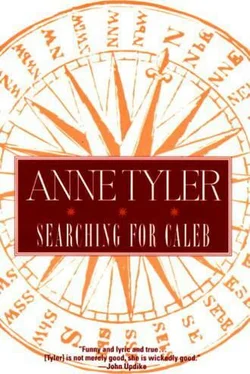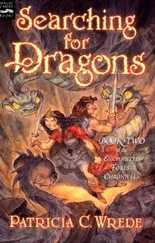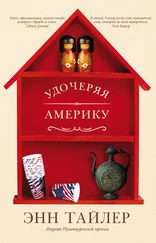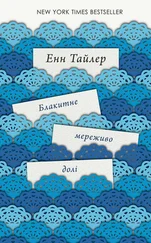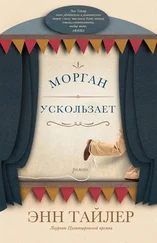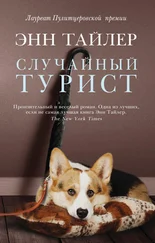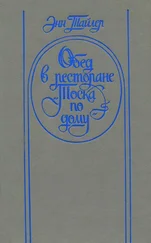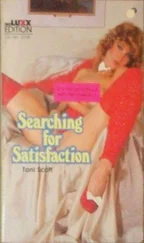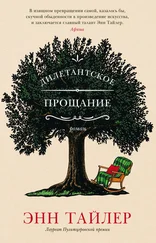Sometimes he worried about Justine. He didn’t want to be the way he was, uprooting her yearly or even more often, switching Meg to still another school. He knew how the neighbors shook their heads over him. Yet it seemed he suffered from some sort of chronic dissatisfaction which came and went like malaria, and the only way to hold it back was to learn more and more new facts, as if continually surprising his mind. Now peculiar scraps of knowledge were stuck to him like lint from all his jobs. He knew a Toggenburg goat from a Saanen, he could measure a dachshund, by sight alone, for a plaid mackintosh with matching Sherlock Holmes-style hat. He was an authority on the making of yogurt and the application of poisons to broad-leafed weeds during dandelion season. He had also discovered that every shop, even the most unlikely, has a circle of daily customers who become its experts — the elderly gentlemen capping each other’s list of imported cheeses, the ladies debating on the use of slippery elm bark, the teenagers intoning the life history of every member of every rock band. At the tobacconist’s, college boys could spend hours recalling the time a legendary freshman had found a fully aged and yellowed, hand-carved meerschaum pipe sitting on the top of someone’s garbage can. Perched on his stool behind the counter, gloating over the drawings for his pedal-driven flying machine, Duncan absorbed this stray knowledge like sunlight. Never mind that it was useless. And now he was about to find something else to learn, here among these ancient navigating devices and cracked foggy lanterns and ropes of amber beads like half-sucked butter rum balls.
“This is potassium lactate,” said Silas, tapping a brown bottle on the telephone table. “We use it to replace the acids in the covers of old leather books.”
And he looked surprised at the sudden light that flashed across Duncan’s face.
“Now this pad I always keep handy, and the pencil chained. People will call with items to sell, you want to get their addresses. Here, by the way, is a message for you.”
He ripped it off the pad. Habit-Forming Entertainments called, come to lunch first Sun. in Feb .
“What?” said Duncan.
“He said you would know him. He phoned four times in the last two days. He said if you couldn’t make it call back, he’s still listed as Exotico.”
“Ah,” said Duncan, and pocketed the slip. Silas waited but Duncan didn’t explain.
“Well, then,” Silas said finally, “if you can’t think of any questions — but I’ll be by, I’ll drop by often, of course.”
“Of course,” said Duncan, and he sighed, but Silas was groaning back down the steps by now and didn’t hear him.
Habit-Forming Entertainments, which had been Exotico, Inc., last year and Alonzo’s Amazing Amusements the year before that, was located in a cow pasture on the outskirts of Parvis, Maryland. It was a carnival company, of sorts — the kind that is called a forty-miler, although in this case the circuit was considerably wider. It traveled from one tiny town to another, supplying the entertainment for firehouse fairs, church and school bazaars, homecoming celebrations, and the gala openings of new shopping malls. In between trips the entire company lived in trailers in the cow pasture, with a pumpkin-colored tent flying pennants in the middle. They worked year round. Even in the dead of winter, Habit-Forming Entertainments would come trundling across the frost-bitten Maryland countryside to whoever asked for them. They brought mechanical rides, two ponies, a concession stand, a few simple games of chance whenever local law allowed, and five girls to run the games in satin bathing suits with dirty seams. There was also a merry-go-round. It was hard to transport and something was always going wrong with it, the mechanism sticking or the animals toppling over, but Justine preferred it to any other merry-go-round she had ever known. It played only one piece: “The St. James Infirmary Blues.” Whenever Justine heard that tune sawing through the air she had to climb on, she didn’t care if she was too old. She sat astride a laughing white horse, hugging the mane and laughing herself or occasionally crying, because the music was so tinny and sweet and sad and made her nostalgic for times before she was born. And whenever she saw Alonzo Divich, who owned that merry-go-round and all the other equipment, he was whistling “The St. James Infirmary Blues” like a theme song. He said it was the only tune he knew, too. He and the merry-go-round: two clumsy, hopeful, cheerful creatures, lumbering along where you would least expect to find them.
He was whistling when Justine and Duncan arrived; they tracked him down by his song. They left the car at the edge of the field and made their way across the frozen stubble toward the trailers, which sat around the tent in a cold, huddled circle like covered wagons braced for Indian attack. In the spring, when the countryside was blooming, this sort of life could seem pleasant, but not today. Today everything was lit with a sickly white winter sun, the inhabitants were shut inside their trailers, the ponies hung their heads. “Oh, the poor things!” Justine cried, and she felt the same when she passed an orange ride all folded on its truckbed like a crumpled baby dinosaur. But the whistling continued, happy as ever, sailing out from behind a plowshed, and when they had rounded the shed there was Alonzo Divich looking untouched by cold or loneliness or time. He was sitting on a boulder braiding rawhide — a large, dark man with a drooping black mustache and drooping eyes. He wore too many colors of clothing, all a little soiled, greasy, strained across the stomach and crotch and under the arms: a rose shirt, a woven Mexican vest, suede dungarees and crumpled boots. When he stood to hug them, he gave off a smell of leather and honey. “Aha!” he said to Justine. “But you haven’t changed at all! Even the hat is still the same! Is it rooted there?”
He had no accent — only a curious certainty to his speech. But where did he get his hybrid name, and his coloring, and his flashing gold molars and his habit of hugging other men so unself-consciously? Justine had asked him outright, once, what nationality he was. “You’re the fortune teller, you tell me,” he said.
“I read the future, not the past,” she told him.
“Well, the past should be easier!”
“It’s not. It’s far more complicated.”
But he had never told her, even so.
He led them to the tent, where folding chairs were grouped around long wheeled conference tables. This was the company’s communal hall, although in cold weather it was nearly empty. In one corner a blonde wearing slacks, gilt sandals, and several sweaters was combing out a miniature poodle. Two men in overalls were seated at a table drinking coffee from green mugs, but they left when Alonzo entered. “Aah, don’t go,” he said, flopping an arm toward their backs. He pulled out chairs at the center table, and seated himself at the head. Almost immediately a dark old lady appeared and spread a tablecloth. Then she brought a bottle and three small glasses, which she set before Alonzo. He filled the glasses exactly to the brim. The old lady reappeared with paper plates, plastic forks, and then trays of rice, hunks of meat in tomato sauce, eggplant, chicken dusted with some peculiar red powder, wrinkled black olives, bowls of beet soup and chopped cucumber in yogurt, great flat disks of bread and pitchers of green Kool-Aid. Steam rose from the platters, and from Alonzo’s mouth as he talked in the cold, rubbery-smelling air. “Take some, don’t be shy. First Duncan, he’s thinner than ever. He’s stretching out tall and thin like a dandelion. How tall are you, Duncan?”
Читать дальше
